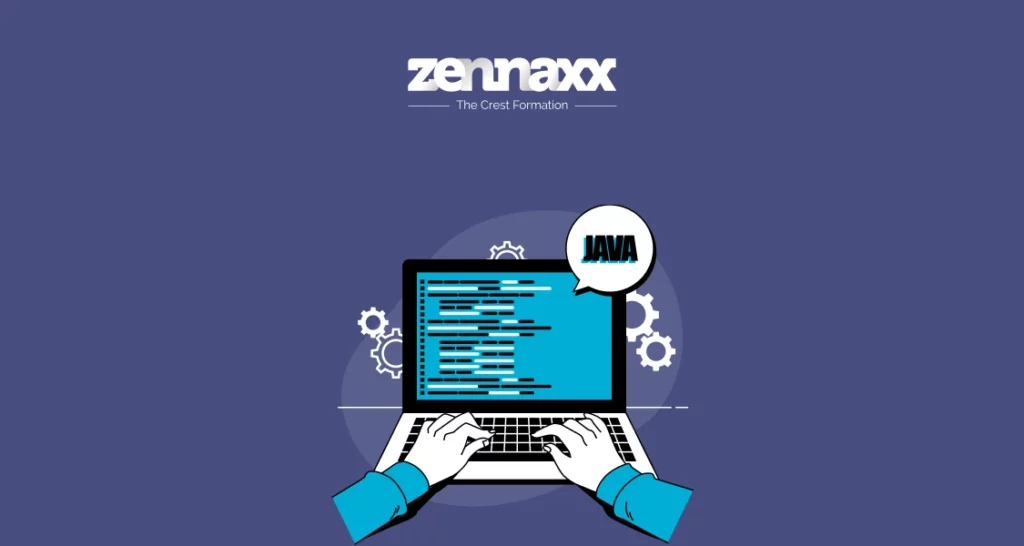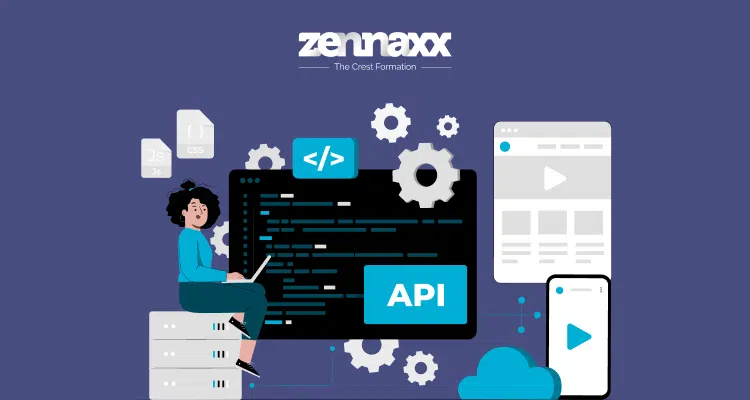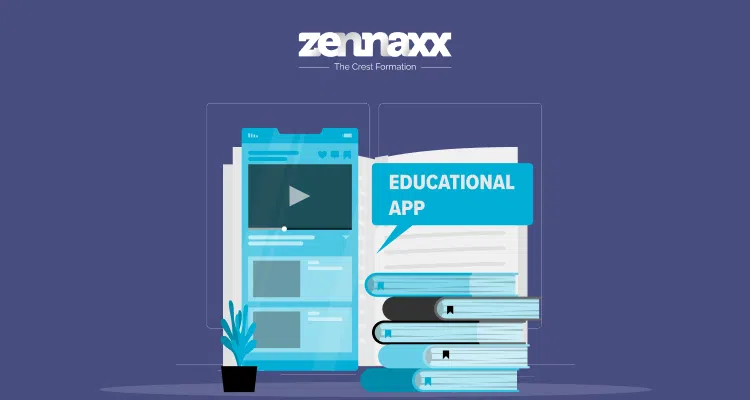Are you tired of spending hours configuring your Spring Framework projects? Spring Boot cuts out the need for manual configuration by using convention-over-configure. which is the biggest reason to choose Java Spring Boot.
Java Spring Boot has become a popular framework for building robust and scalable applications. Its powerful features and capabilities have made it popular among developers.
Dependency injection is a great feature of the Spring Framework. It helps objects say what other things they need, and then Spring takes care of providing those things to them.
This is handy because it lets developers build applications into smaller parts that work together smoothly. It’s perfect for making apps that are split into different pieces, like microservices or ones that need to talk to each other over a network.
If you also want to switch to this and find the reasons for choosing it, here we give you 13 compelling reasons to consider using Spring Boot for your next project.

What is Java Spring Boot?
Java spring framework is the most popular among all java frameworks. The top layer of the Spring framework is made up of Spring Boot, which has all the features that Spring provides to programmers.
So, Java Spring Boot is an extension of the Spring framework. Spring gives a substantially smaller boilerplate and configuration. It offers a pre-configured framework for developing Spring-powered apps with minimal XML and an annotation-based setup.
With the help of this open-source platform, developers can create separate digital products and production-ready spring programs, including web services and Java apps, more easily.
It is most appropriate for creating microservices for web and mobile apps since it is based on a microframework. The open-source service Java Spring Boot gives developers so many advantages. So here we write the 13 reasons for the benefits of using Java Spring Boot in development.
1. Increase in Development Speed :
To be specific, Spring Boot has an in-memory database embedded server that helps one decrease or remove the boilerplate code, which is of utmost importance to set up a fully running application.
This helps decrease the development time, leaving the employee more productive. Hence, it is considered a time saver for developers.
Due to its opinionated nature, Spring Boot significantly reduces the setup time for a new project. Developers don’t need to spend extensive time configuring the application from scratch or making decisions about the project structure.
Instead, they can take advantage of the defaults provided by Spring Boot, allowing them to jump into development quickly.
With Spring Boot, the process becomes much simpler. Instead of dealing with complex XML configurations, developers can achieve Spring MVC functionality by adding a specific “starter” dependency.
A starter is a pre-configured set of dependencies that align with a particular use case. In this case, the Spring Boot starter for web applications includes all the necessary dependencies and configurations for Spring MVC. As a result, developers can set up a Spring MVC project without requiring extensive manual configuration or XML code generation.
2. Learning and Adaptation Curve :
If you already understand the Spring framework, learning Spring Boot becomes a straightforward process. This is because java Spring Boot is an extension of the Spring framework. To begin with the idea of the same, you must be familiar with a small set of annotations and open to learning.
To begin development with Spring Boot, even for those unfamiliar with Spring, it mentions that one needs to familiarize themselves with a small set of annotations.
Annotations in Java are metadata that provide information to the compiler or runtime environment. Annotations are used in Spring Boot to configure different parts of the application.
3. A Starting Point for Everything :
Spring Boots are considered one of the easiest to create standalone and core production-level applications. The one form where the applications start all over is just the “RUN” command. Most Spring Boot applications need minimal Configuration, which creates everything.
Spring Boot Starters simplify application setup by providing starter dependencies for database connections, message queue communication, and email sending. The statement highlights the availability of starter dependencies for most Spring modules, reducing the need for developers to configure or handle dependencies individually and manually.

4. Built-In Web Servers :
Built-in servers are considered one of the most important parts of deployable applications. The advantage of this is that one may not need to pre-install the setup. The Tomcat server listens for HTTP requests on port 8080. It supports the in-built web servers.
With Spring Boot, the application is packaged as a JAR file. This JAR file contains all the required libraries and configurations, making it self-contained and capable of running as an application server. This portability means the same JAR file can run in any environment supporting JAR files.
Spring Boot applications can be deployed with embedded servers for quick setup or converted to WAR files for traditional server deployment, ensuring flexibility for project requirements.
5. Pre-installed JUnit Support :
The Junit testing system is an open-source unit testing framework. It helps one write and execute automated tests. In Java, developers must re-execute many test cases every time they add new code to the database to ensure the code is unbroken and they do not skip anything.
The example provided showcases a simple auto-generated test case using the @SpringBootTest annotation. In this case, the test checks if the Spring context loads properly. The test class’s briefness and the test method’s simplicity underscore the ease of writing tests in a Spring Boot project.
//SpringBootTest//
class SpringBootDatabaseApplTests {
//Test//
void contextLoads() {
}
}
6. Microservices architecture :
Microservices allow comparatively large systems to have built up several collaborating components. It does so at the initial level that springs to the component level. Spring Boot is one of the premier conferences for building scalable microservices to save budget on applications throughout the ideal application.
Transitioning a complex website from a monolithic to a microservices architecture on cloud-based and containerized platforms offers enhanced scalability, flexibility, and easier service management. Microservices separate payment processing and ordering into separate units, so essential operations like payments can function even if other services like invoicing encounter issues.
7. Ultimate IDE Assistance for Spring Boot :
Eclipse is one of the most popular open-source IDEs that permits excellent support throughout the Java-based application. Many Spring Boots are available, which offer the widest range of development options.
The availability of code assistance features, such as code completion and navigation, in major IDEs like IntelliJ IDEA Ultimate, Visual Studio Code with the Spring Tools Extension, and Eclipse with the Spring Tools plugin underscores the commitment of these tools to supporting Spring Boot development.
Developers can choose the IDE that aligns with their preferences while enjoying a comprehensive set of features for working with Spring Boot projects.
Planning software development?
Ready to elevate your web projects? Partner with us for seamless web app solutions.
8. Spring Profiles :
Spring profiles have provided a way to separate each part of the application and configure the availability of certain environments. The profile maximum limit marks Component and Configuration.
With Spring Profiles, developers can selectively enable or disable components in the application. This level of granularity is particularly useful when there’s a need to use different components based on specific conditions or requirements.
The use of profiles allows for selective or deactivation of features, depending on their context. This flexibility is advantageous in scenarios requiring different configurations or components for different environments or use cases.
9. Features that are production-friendly :
Without any doubt, Spring Boot is popular and known for its microservices. Its robust quality and out-of-the-box feature attempt to make the application production-ready by default. Including monitoring, metrics, and logging features immediately saves developers time and effort in setting up and configuring them.
The Health Actuator Endpoint highlights a feature that enables application status monitoring. This API allows developers to assess their application’s overall health and provides valuable insights.
10. Different Packaging and Deployment Options :
Java Spring Boot developers can easily package applications into JAR Files and consider them standalone, ready for deployment as standalone applications.
Beyond traditional packaging, Spring Boot simplifies the creation of high-performance Docker images. With additional configuration and parameters, developers can generate Docker images directly from their applications. This simplified the process of containerizing Spring Boot applications.
Managing Spring Boot applications is straightforward, with easy-to-use commands for starting and stopping. This simplicity enhances the developer experience and facilitates the quick testing and deployment of applications.
11. Strong community support :
Just like many other open-source platforms, Spring Boot has a large community full of people who are ready to share ideas and knowledge. You can find a ton of online tutorials and discussions about Java Spring Boot, regardless of your level of experience.
There are many existing codebases that closely match your project requirements, which is one of the benefits of being a part of such a vibrant user base.
Rather than starting from scratch, taking advantage of existing code can speed up your development process. For trusted support and information, you can visit the Spring Boot page of GitHub.
Many developers like to use this technology in development sharing so many personal experiences and new updates related to this platform.
12. Continuous Updates :
Spring Boot’s code is open source, which means that anyone can use, modify, and contribute to it. Many different companies and individuals, known as vendors, collaborate on improving and maintaining this open-source project. This collaboration involves a huge community of developers, each bringing unique viewpoints and levels of expertise to the table.
Java Spring Boot is primarily used in Java programming, but it is also widely used in software development. Most developers are familiar with it and provide their expertise. Whether you’re a seasoned developer or just getting started, you can benefit from others’ collective wisdom.
13. No requirements of WAR files :
Spring Boot supports the use of WAR (Web Application Resource) files, but it does not require them. Spring Boot now supports JAR (Java Archive) files. JAR files provide a concise and straightforward structure, which makes them advantageous for both developers and users. These lightweight files make for quick connectivity between applications and the tools required to run them.
The ability to choose between WAR and JAR formats is also a plus point for development teams. If a team member lacks experience with JAR, they can opt for WAR. While this choice may have a minor impact on speed, it helps developers expedite their product launches.
Transform your business with web development
Zennaxx, a leading software development firm in Canada, has delivered 700+ bespoke solutions spanning various industries.
Conclusion
Many Java developers choose Spring Boot as the framework for developing microservice architecture applications. Its popularity stems from its user-friendly features and extensive toolkit, which includes integrated servlet containers and support for various testing frameworks.
This powerful tool significantly streamlines the configuration and development processes. Our expert Java developers explain the benefits of using Java Spring Boot in development. Hire our Java developer team or send an inquiry to Zennaxx for any project-related query.








